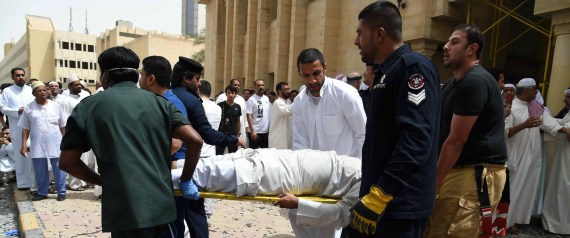
Two recent deadly attacks -- one in Kuwait and one in Tunisia -- were claimed by ISIS, although whether or not ISIS really orchestrated them is unconfirmed.
Even if links are made to ISIS in both cases, it does not necessarily mean there is a strategy behind it. ISIS's brand allows individuals to capitalize on the fear associated with it and further their own means.
The question of timing has also been posed. ISIS spokesman Abu Muhammad Al-Adnani recently urged jihadists to scale up their attacks during the on-going holy month of Ramadan. ISIS declared their caliphate on the first day of Ramadan last year. The timing is also significant for the shock-factor alone. Many Muslims have taken to social media to express their horror that ISIS is trying to portray Ramadan as a month for jihadist attacks, when it is traditionally a month of celebrating peace.
If, as their online supporters are implying, ISIS is found to be behind these attacks, it will fit a worrying pattern of terrorism that is both globalized and improvised. Individuals with loose connections to jihadists can execute their own attacks under the ISIS brand, while ISIS welcomes these as a show of expansion.
"Individuals with loose connections to jihadists can execute their own attacks under the ISIS brand, while ISIS welcomes these as a show of expansion."
ISIS's leadership remains focused on building up their so-called "state" in Iraq and Syria, and so at this stage, they are depending on international affiliates to transport their sinister ideological agenda. However, should their state collapse, as it eventually must, we may see their efforts globalized even further, as they atomize their efforts, and, likely, hit back at those they perceive as responsible for their failure.
ISIS, unlike the other jihadist organizations, has largely implemented its long-term objective of building a state. It is in fierce contention for territory against the Iraqi government and the Western coalition of opposition. In reality, ISIS is losing large swathes of land rapidly, but according to the narratives they aim to project, they are thriving -- even introducing their own form of currency.
Therein lies the reason ISIS may ideologically engineer or claim terrorist acts abroad in countries such as Kuwait and Tunisia: they thrive from the publicity these attacks garner. These attacks will do nothing but emphasize the narratives of which they project -- that they are an omnipotent presence that can strike at will.
"There's a fine line between giving terrorists the attention they thrive on and countering them."
In the past, these attacks have been conducted by "home-grown" radicals, and thus no financial or operational costs are required of the group that inspires them. It is important to note that ISIS's religious-rational framework means that no target is insignificant, nor too small. Westerners, Shia Muslims and even statues are fair game in exercising their devotion to their violent, sectarian ideology. Therefore attacks like these are a win-win situation for ISIS: they garner much-needed publicity, and they invoke mass fear with no skin off the group's back.
Terrorists thrive on attention. There's a fine line between giving them that attention and countering them. More than ever, it is necessary to reject ideologies that terrorists can use to their advantage. We must explicitly, and unitedly, say that we will not compromise human rights for ideological doctrines which have no place in a tolerant society.
No comments:
Post a Comment